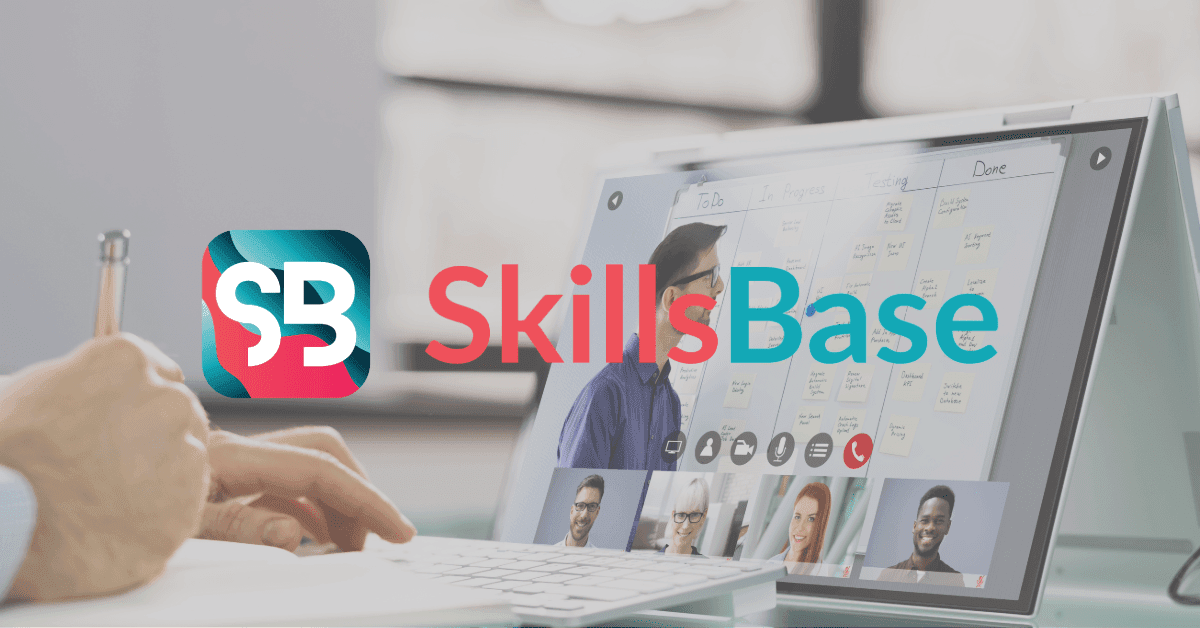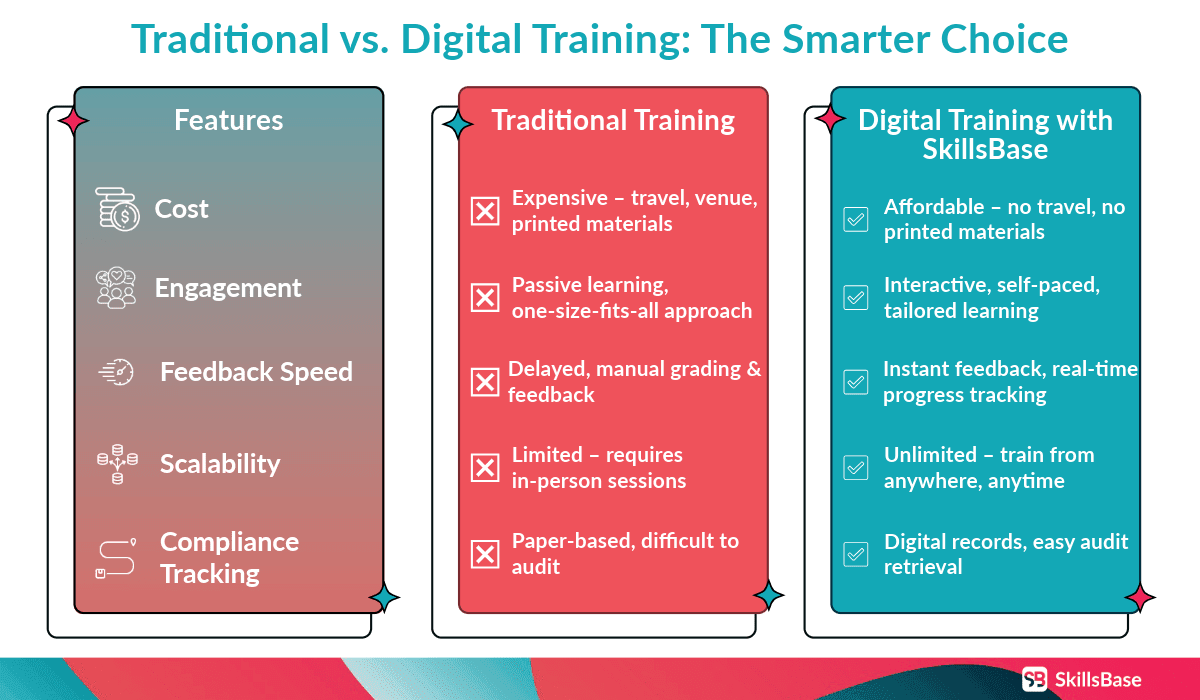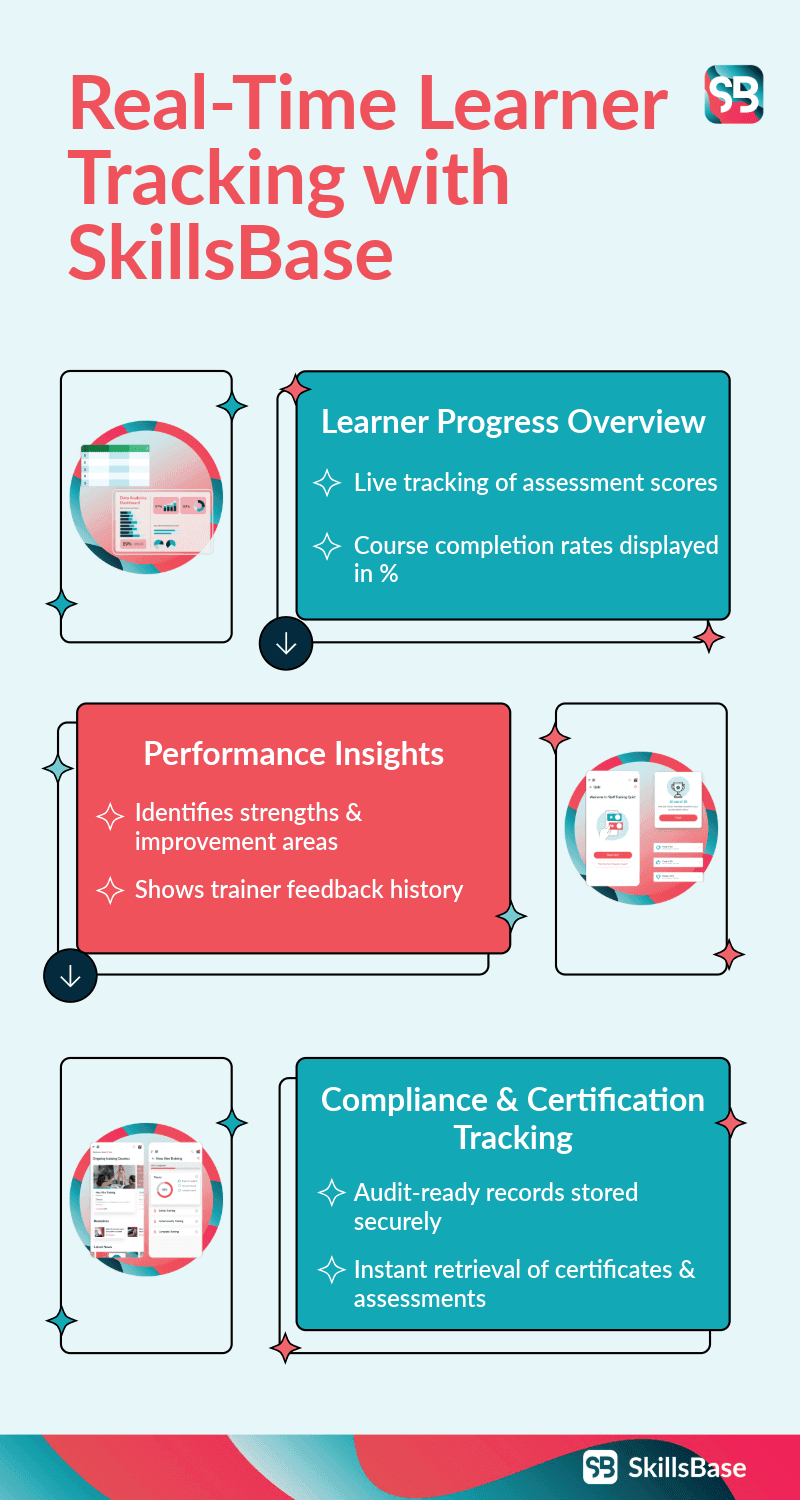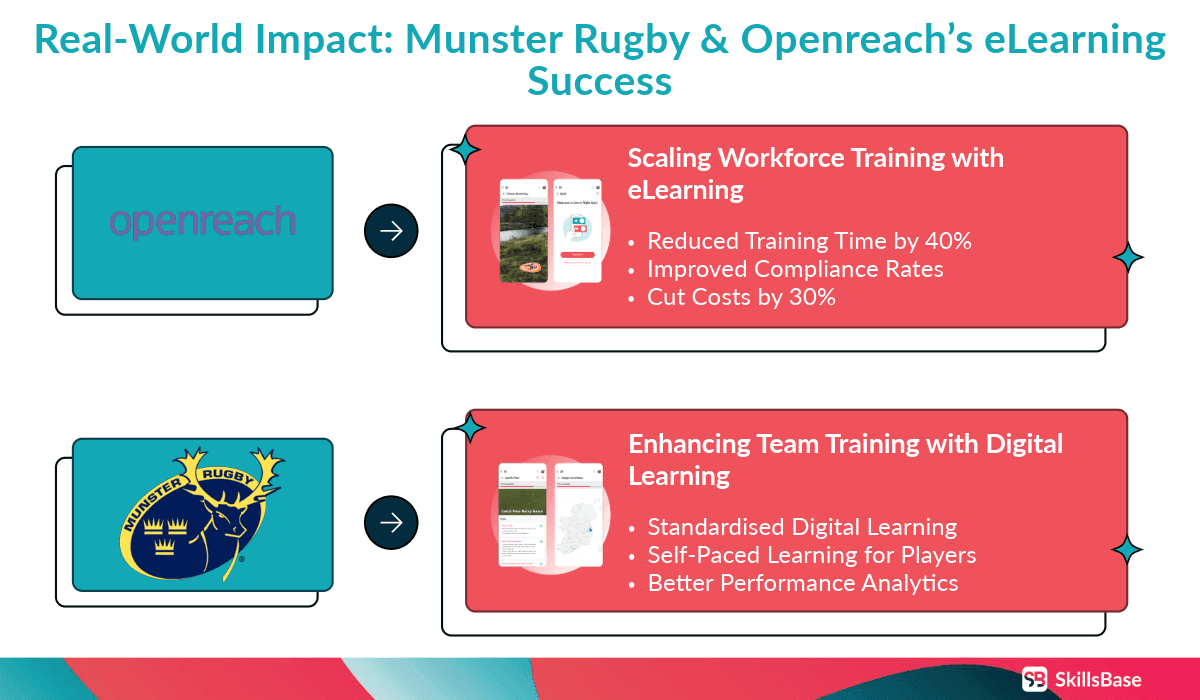Beyond Convenience: Why eLearning is Transforming Skills Development Across Industries

The way we learn, train, and certify skills has changed dramatically over the past decade. While traditional, in-person training still plays a role, organisations across telecoms, construction, health & safety, and professional sports are embracing eLearning as the primary mode of workforce development.
But eLearning isn’t just about convenience,it’s about improving engagement, accessibility, efficiency, and training outcomes. With the rise of remote work, flexible learning models, and digital transformation, eLearning has become the most effective way to develop skills at scale.
Training providers and organisations that fail to adapt risk falling behind, while those leveraging digital learning platforms are gaining a competitive edge in talent development.
The Limitations of Traditional Learning Methods
For decades, industries have relied on classroom-based training, instructor-led sessions, and paper-based materials to train their workforce. While effective in some cases, these traditional methods have several limitations:
- Rigid Scheduling & Logistics:
- Fixed training schedules mean limited flexibility for learners.
- Employees and trainees must travel to centralised locations, increasing downtime and costs.
- Inconsistent Training Quality:
- Different trainers may teach slightly different versions of the same material.
- Without digital standardisation, instructor bias can lead to varying learner outcomes.
- High Costs:
- Travel, accommodation, instructor fees, and materials drive up training costs.
- Repeating in-person training for new employees or refresher courses adds further expenses.
- Limited Tracking & Assessment:
- With manual processes, it’s difficult to track learner progress in real time.
- Organisations struggle to measure training effectiveness and compliance rates.
- Rigid Scheduling & Logistics:
Why Training Providers Are Adopting eLearning
As industries move toward data-driven decision-making, training providers are adopting eLearning for scalability, efficiency, and accessibility.
- Flexible & Self-Paced Learning:
- Learners can access content anytime, anywhere, reducing training-related disruptions.
- Self-paced learning allows individuals to progress at their own speed, improving knowledge retention.
- Consistent, High-Quality Training:
- Digital learning ensures that all employees or trainees receive the same content, reducing knowledge gaps.
- Pre-recorded or interactive modules remove instructor variability, delivering uniform training outcomes.
- Scalable & Cost-Effective:
- eLearning allows organisations to train thousands of employees without increased costs per learner.
- Once digital courses are created, they can be reused indefinitely, eliminating ongoing venue and instructor fees.
- Real-Time Data & Performance Insights:
- Digital platforms track completion rates, assessment scores, and engagement levels, allowing trainers to identify knowledge gaps.
- Organisations can measure the ROI of training programs and make data-backed improvements.

How SkillsBase is Transforming eLearning
SkillsBase is leading the shift to digital learning, providing organisations with interactive, scalable, and results-driven eLearning solutions.
- Blended Learning Approach:
- Integrates digital training, assessments, and practical exercises for real-world application.
- Ensures learners apply knowledge in practical settings, improving skill retention.
- Mobile-First Design:
- Courses are accessible on smartphones, tablets, and laptops, allowing trainees to learn anywhere.
- Particularly useful for on-site workers, field technicians, and mobile professionals.
- Engaging, Interactive Modules:
- Includes videos, quizzes, and simulations to keep learners engaged.
- Studies show that interactive learning leads to 75% better retention rates than passive learning. (Clark & Mayer, 2016)
- Automated Compliance Tracking:
- Built-in reporting tools allow organisations to track learner progress and certification status.
- Reduces the burden of managing training compliance for audits.

Real-World Impact: Munster Rugby & Openreach’s eLearning Success
1. Munster Rugby: Enhancing Team Training with Digital Learning
Munster Rugby, a professional rugby club, needed a flexible, high-quality training platform to supplement in-person coaching and athlete development. With SkillsBase, they achieved:
- Standardised Digital Learning: Provided consistent, high-quality training materials for players, coaches, and staff.
- Self-Paced Learning for Players: Athletes could review strategies, game footage, and training plans remotely, improving match preparedness.
- Better Performance Analytics: The platform allowed coaches to track player engagement and progress, ensuring all athletes were fully prepared for matches.
2. Openreach: Scaling Workforce Training with eLearning
Openreach, one of the UK’s leading broadband infrastructure providers, needed a scalable training solution for its large workforce. By using eLearning via SkillsBase, Openreach:
- Reduced Training Time by 40%: Digital training modules replaced lengthy classroom sessions, enabling faster workforce onboarding.
- Improved Compliance Rates: Automated tracking ensured all technicians completed their training on schedule, avoiding compliance risks.
- Cut Costs by 30%: Eliminated travel, accommodation, and instructor expenses associated with traditional training.

The Long-Term Benefits of eLearning for Training Providers
eLearning is not just a short-term fix,it’s a sustainable, scalable way to train employees and professionals across industries.
- Lower Costs & Higher ROI: Reduces travel, venue, and material expenses, making training more affordable long-term.
- Better Learning Outcomes: Interactive, digital learning improves engagement and retention, leading to higher assessment pass rates.
- Stronger Compliance & Audit Readiness: Digital records provide a clear audit trail, ensuring regulatory compliance with industry standards.
- Inclusive & Adaptive Learning: Supports different learning speeds and styles, ensuring all employees receive effective training.
Conclusion: eLearning is the Future of Workforce Training
Industries are shifting away from one-size-fits-all, classroom-based training and embracing eLearning for its scalability, efficiency, and accessibility.
From rugby teams like Munster Rugby, to telecom giants like Openreach, organisations that invest in digital training see faster workforce development, reduced costs, and better compliance tracking.
For training providers, employers, and awarding organisations, SkillsBase offers the ultimate eLearning solution, ensuring that learners stay engaged, training remains consistent, and compliance is effortless.
📚 Looking to enhance your training programs with eLearning?
Discover how SkillsBase can help you deliver engaging, scalable, and compliant digital training solutions.
👉 Contact us to schedule a demo.

